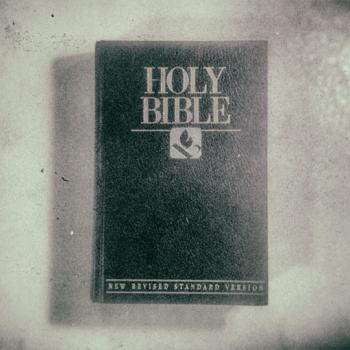This guest post was written by Janene Cates Putman.

In my fundamentalist life, by now I would have been dreading Mother’s Day — not because I didn’t want to honor my Sweet Little Mother (who is clearly a saint) or because my children didn’t honor me (ah, the days of the noodle necklaces and handprint art). I dreaded it because of the ubiquitous Mother’s Day Sermon. Y’all know the one I’m talking about: the text is Proverbs 31 and the subject is “Biblical Womanhood.” This prospect filled me with dread because I knew I couldn’t — and wouldn’t — be the model of a “Proverbs 31 woman.”
May I point out that Proverbs 31 was most likely written by a mother (the queen) who was advising her son (the prince) on choosing a wife? Now come on, boy moms, what would you include in that list? What kind of woman would be the dream wife for your son? May I propose that fundamentalist Christians might be reading and teaching this poem inaccurately? May I further propose a better way?
The “Proverbs 31 woman” was a wife, mother, businesswoman, and community activist. She was never meant to be held up to all women everywhere as the example of who we should be and how we should behave. And, by the way, “she” wasn’t a real woman. She was a literary device, one written to honor and value women’s many roles, not to assign a single, limiting way of being a “virtuous woman.”
Thanks to Rachel Held Evans, we all know that Proverbs 31 wasn’t written to be a guide for devout women. It was written to celebrate the “woman of valor” in all her varied roles. Rather than being a bully passage, it is an honor poem. But the sermons that will be preached in many churches this Sunday will leave out that part; I never heard it preached that way in my previous life.
What I heard, and what many mothers will hear Sunday, was that the pinnacle of “Biblical womanhood” is being a wife and mother. A “good Christian mother” will find her highest fulfillment in her role in the home. Should this not be the case for a particular mom, she plainly has a “Jezebel spirit” and desires to control her husband. At this point, the horrible F-word — feminism — may be introduced as the root of all kinds of evil. The good news for this wayward wife/mother is that, by submitting to God and her husband, all can be roses and rainbows in her family.
I’m not attributing malicious intent to the pastors preaching these sermons. This is just an attempt to provoke a different conversation around womanhood: a more loving, compassionate, and diverse one — an inclusive one. Each Mother’s Day I felt beat up, less-than, hopeless — knowing for sure that I could never measure up to this idealized brand of mother. My prayer is that my daughters and granddaughters are never made to feel this way.
Thankfully, the churches we now support and attend will continue their regularly scheduled sermon series (one in Colossians, the other, the story of Joseph) on Mother’s Day. It’s lovely to be able to look forward to this Sunday without the slightest bit of trepidation. While honoring mothers, our faith communities will be sensitive to those for whom Mother’s Day serves as a painful reminder. As they do each week, these services will celebrate the diversity that is Christianity and that is womanhood. Here’s to a Mother’s Day without Proverbs 31!
Photo via Unsplash and edited by Dan Wilkinson.
About Janene Cates Putman
Janene Cates Putman is a literary publicist and marketing coach, activist, writer, and speaker. She and her Hot Husband live in the mountains of east Tennessee. Follow her on Twitter @jdixie0105.












